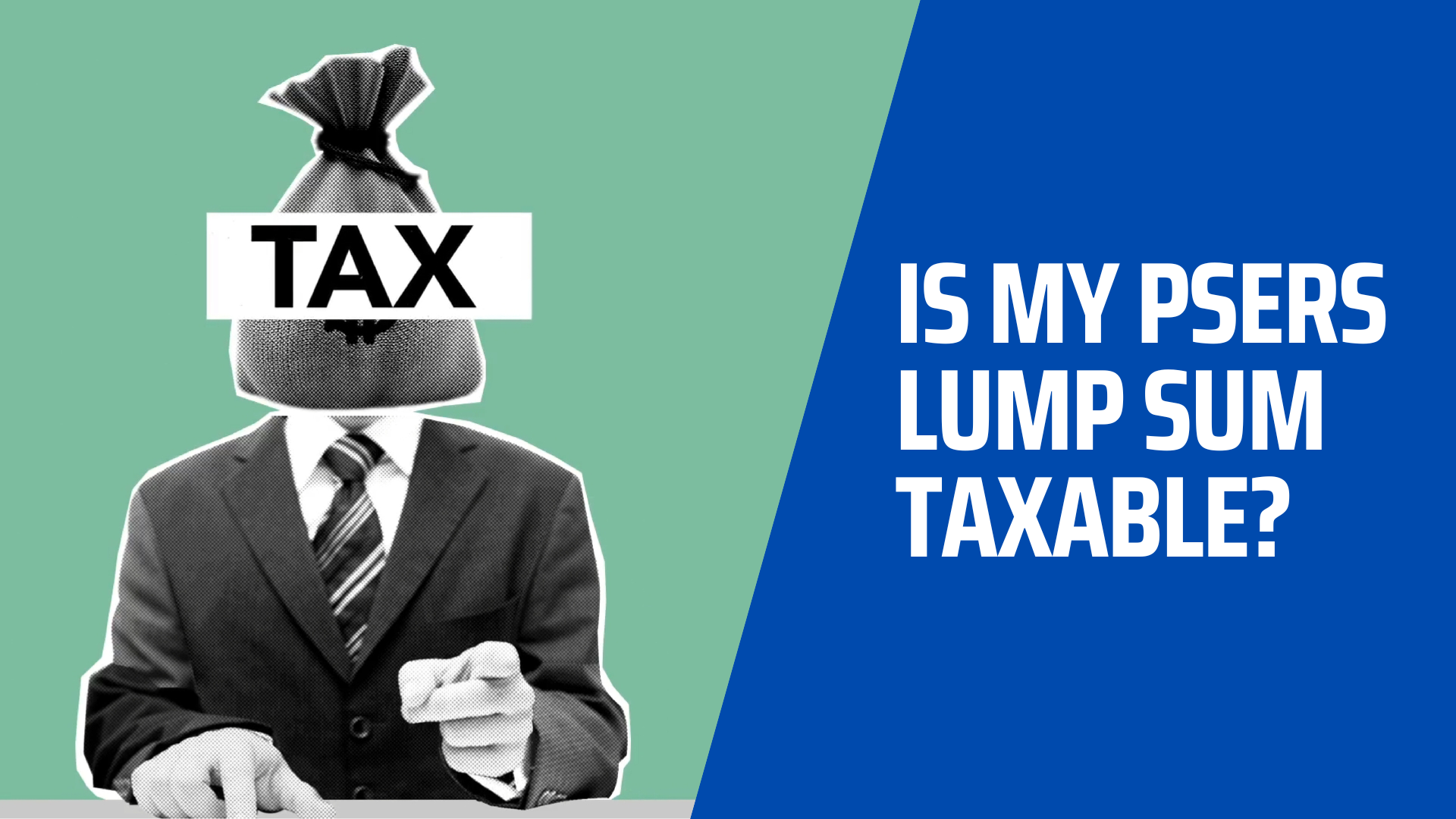*TeachersRetire is not affiliated with, endorsed or sponsored by PSERS*
Each paycheck, you contribute to your PSERS account. These funds earn interest over time and can potentially grow to a substantial amount over a long career in PSERS. When it comes time to retire, you have decisions to make about these funds which impact your pension, taxes and overall retirement picture.
Many PSERS members like you have questions about the lump sum. Let’s dive into 3 common questions so you can make confident and informed decisions.
FAQ #1- Do I have to pay tax on the lump sum?
The amount of your pay contributed to your PSERS account depends on your member class. If you’re nearing retirement, you’re likely contributing 7.5% of your pay. This amount is deducted from each paycheck before taxes. This means every dollar added your PSERS account has not yet been taxed.
Your contributions are also earning 3% interest while in your PSERS account. This interest is earned each year and not taxed while it remains in your account. So, the total of your contributions and interest has not yet been subject to federal income tax.
Since it has yet to be taxed, your PSERS account value is considered “tax-deferred”. This is similar to pre-tax 403(b)s, IRAs, 401(k) plans and other pre-tax retirement accounts. The money added to your pension account and pre-tax retirement accounts is not taxed while in the account nor is the growth.
Avoiding tax on those contributions is helpful while you’re working. However, you can’t dodge paying tax forever! The amount in your PSERS account is reportable as income and will be taxed at your federal income tax bracket when you choose to withdraw it.
The good news is you have control over when you make withdraws and when tax is due. You have options and each one has a different tax implication. This makes it very important to plan ahead and to have taxes on your mind as you make PSERS pension decisions.
FAQ #2- What can I do with the lump some money?
If you choose to withdraw your contributions and interest, you have a few options:
- Withdraw the full amount
- Wityhdraw a portion
- Roll the full amount or a portion into a pre-tax retirement account
Let’s explore each option and how taxes come into play.
Option #1- Withdraw the full amount
If you choose to withdraw all of your lump sum and deposit into your bank account, you will owe tax on the full amount in that year. PSERS will report your withdrawal as taxable to the IRS and you will receive a 1099 tax form showing that you withdrew the funds. You’ll report this amount on your tax return that year.
Keep in mind that PSERS typically withholds 20% of your withdrawal for federal tax. This may be enough to cover the tax you owe. However, it may not be enough, depending on your other household income. This additional taxable income could cause you to move into a higher tax bracket. It’s important to discuss the tax impact of your withdrawal with your tax preparer so you can plan accordingly and avoid a surprise when filing your tax return!
You should also be aware of the 10% “early withdraw” penalty that might apply to you. This is an additional tax penalty applied to your withdraw if you terminate employment before age 55 and withdraw your PSERS lump sum before age 59 1/2. You can learn more about this early withdraw penalty here.
Option #2- Withdraw a portion
You can choose to withdraw a portion of your lump sum and roll the remainder into a pre-tax retirement account. The amount you withdraw is subject to income tax. The amount rolled over will avoid tax until it is withdrawn from the retirement account.
All of the rules about the 20th withholding and 10% early withdraw penalty mentioned above may also apply to a partial withdraw.
Option #3- Roll the full amount or a portion into a pre-tax retirement account
To avoid owing tax on your lump sum, you can choose to roll the full amount to a pre-tax retirement account. PSERS allows rollovers to pre-tax IRAs, 403(b)s and other common retirement plans. Electing to rollover your lump sum is done on your PSERS Application for Retirement.
You will also need to complete the Authorization for Direct Rollover form which tells PSERS where to send your funds to be deposited into a retirement account.
FAQ #3- I’m delaying my pension, can I withdraw/roll over my lump sum now?
If you’re terminating employment and don’t need to begin your pension right away, you can choose to defer your PSERS pension. You might choose this if you’re going to work another job outside of PSERS, if you don’t need the income right away or if you’re trying to reach Normal Retirement.
When deferring your pension, you cannot withdraw or roll over your lump sum right away. Your lump sum must remain in your PSERS account until you submit your retirement application and formally retire from PSERS and claim your pension benefit.
Your contributions and interest lump sum can play an important role in your retirement financial life. If you choose to withdraw it, make sure to avoid mistakes or surprises by planning far in advance and keeping taxes in mind.
Wrapping Up
The contributions you’re made to your PSERS account over your career is an important retirement asset. You want to make sure you make the most of that money and make the best decisions possible for your family and financial future. The best way to avoid mistakes is to plan far in advance and make sure to consider your retirement income needs and taxes before making any final pension choices.



